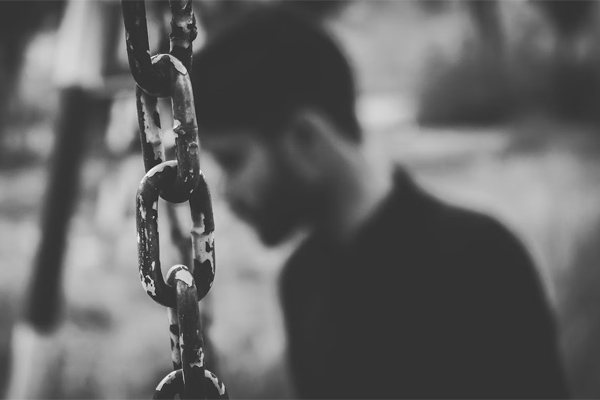

Are you struggling to maintain healthy boundaries in your relationships? Do you find yourself constantly sacrificing your own needs and desires to meet the needs of others? If so, you may be in a codependent relationship. Codependency can be a challenging pattern to break free from, but recognizing the signs is the first step towards healing. In this article, we'll explore the key indicators of codependency, the impact it can have on your life, and practical strategies for reclaiming your autonomy and building fulfilling relationships.
10 Signs of Codependency in Relationships
In a codependent relationship, both individuals rely on each other for mental, emotional, physical, and/or spiritual support, leading to dysfunctional patterns. This type of dependence can occur between friends, family members, or romantic partners, especially when one person has an addiction.
The term "codependency" originated in the 1950s within Alcoholics Anonymous to describe partners of individuals who struggle with substance abuse. Although it is not a clinical diagnosis or a standalone personality disorder, codependency often reflects patterns of attachment styles developed in early childhood and can intersect with other personality disorders, such as dependent personality disorder.
According to Dr. Renee Exelbert, a licensed psychologist and author from New York, the term "codependency" was initially created to help those who cared for individuals struggling with substance abuse and were involved in their toxic lifestyles.
Codependency is an imbalanced relationship pattern where one person takes responsibility for the needs of another to the exclusion of acknowledging their own needs and feelings. This type of relationship is often built around a power imbalance that promotes the needs of the taker, leaving the giver to keep giving, often at the expense of themselves.
According to Drs. Mayfield and Exelbert, there are several signs that may indicate a codependent relationship where you are the giver:
- Walking on eggshells to avoid conflict with the other person
- Feeling the need to check in with the other person and ask for permission to do daily tasks
- Apologizing frequently, even if you are not at fault
- Feeling sorry for the other person, even if they hurt you
- Trying to change or rescue troubled, addicted, or under-functioning people whose problems go beyond your ability to fix
- Doing things for the other person even if it makes you uncomfortable
- Putting the other person on a pedestal despite their behavior not meriting it
- Seeking validation from others to feel good about yourself
- Struggling to find time for yourself, with your free time going to the other person
- Feeling as if you’ve lost a sense of yourself within the relationship.
How to Overcome Codependency
To overcome codependency, start by working on self-awareness. While you can start this on your own, seeking help from a therapist can be highly beneficial, as they can assist you in unraveling your codependent tendencies.
According to Dr. Mayfield, many people don't seek help for their codependency issues until their life begins to fall apart. That's why it's important to take a proactive approach and seek help as early as possible.
Once you begin your journey towards overcoming codependency, there are several things you can do:
- Learn to speak lovingly and positively to yourself. Avoid self-criticism and become your own biggest supporter.
- Take small steps towards separating yourself from the relationship. Try new activities and invest in friendships outside of the relationship. Discover what makes you unique and focus on developing that.
- When you find yourself thinking or worrying about someone else, actively redirect your attention inward. Remember that your needs and happiness are important too.
- Stand up for yourself if someone tries to control or undermine you. Building your self-esteem will give you the strength to set boundaries and protect your own well-being.
- It's okay to say "no" if you don't want to do something. Don't be afraid to prioritize your own needs and wants.
- Consider joining a support group or group psychotherapy, such as Codependents Anonymous (CoDa), if you prefer a group setting over one-on-one therapy.
A Word From iFindCheaters
In conclusion, codependency can be a challenging pattern to break free from, but recognizing the signs is the first step towards healing. If you suspect that you are in a codependent relationship, seek help from a therapist as soon as possible. And if you have doubts – make sure that you’re on the same page with your partner with iFindCheaters. Your online service lets you discreetly check whether your partner has a dating site profile and find out whether they are seeking romantic connections with others. Remember that you deserve a healthy, fulfilling relationship, and breaking free from any doubts and worries is crucial step towards achieving that.













